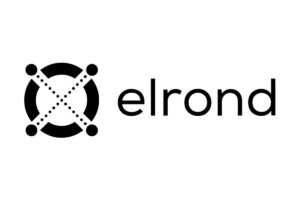[ad_1]

If applied, a much-discussed Ethereum Improvement Proposal (EIP) would have resulted in the burning of just about one million Ether (ETH) in 2020, in response to data revealed by Spencer Noon of crypto funding fund DTC Capital, on Oct. 16. It would have additionally alleviated these large spikes in fuel costs.
The Ethereum Improvement Proposal that would successfully change the charge market mechanism by burning just a little ETH for each transaction made has but to be applied as it’s still being tested.
If EIP 1559 had been applied, hypothetically it might have burnt an estimated 970,000 ETH over the previous twelve months, in response to Dune Analytics. At immediately’s costs, that is roughly $370 million price of ETH.
If EIP-1559 had been applied, over the past twelve months, an estimated 970k $ETH ($360M) would have been burnt.
h/t @PhABCD @DuneAnalytics pic.twitter.com/F0ANa0y2Rx
— Spencer Noon (@spencernoon) October 15, 2020
In August, BeInCrypto reported that the highly anticipated Ethereum upgrade was badly needed to deal with surging fuel costs, on the time. The proposal would regulate the public sale system that’s at the moment in place for bidding on transaction costs. Under heavy load, the bids enhance to compete for miner consideration which is what causes the fuel worth spikes.
EIP 1559 would introduce a pricing mechanism that features a fastened, per-block community charge that’s burned and dynamically expands and contracts to take care of congestion. This would additionally impact Ether provide, ultimately decreasing issuance over time when proof-of-stake will get underway.
When is EIP 1559?
Developer Tim Beiko has been arduous at work on the EIP, however there’s nonetheless a variety of testing to be accomplished earlier than it may be deployed to mainnet. In his newest replace, Beiko stated that there have been no new main objections to the proposal.
The replace covers a variety of what I’ve been sharing right here over the previous few weeks. First up, the EIP-1559 dialogue on AllCoreDevs: https://t.co/AqmTNnycIM
— Tim Beiko | timbeiko.eth (@TimBeiko) October 15, 2020
However, he added that the dangerous information is the denial of service dangers on Ethereum remains to be a serious concern that must be addressed earlier than deployment.
The 1559 Clique testnet remains to be operating with Basu and Nethermind purchasers, whereas Vulcanize is engaged on a consensus problem. He added that the “biggest win” was getting the specification for the proposal simplified by streamlining transactions.
More Work to Do
A community outreach report was additionally revealed final week and one of many key findings was:
“The main benefits that projects see with EIP-1559 are the predictability of gas prices, especially for projects who set them for their users, and the fact that ETH is burnt in each transaction.”
Beiko has additionally setup a “mainnet readiness checklist,” which exhibits all the main issues that should be ticked off earlier than deployment can happen.
In the meantime, Layer 2 is emerging as the go-to solution for quicker and cheaper Ethereum transactions.
Disclaimer
All the knowledge contained on our web site is revealed in good religion and for normal info functions solely. Any motion the reader takes upon the knowledge discovered on our web site is strictly at their very own danger.
[ad_2]
Source link



